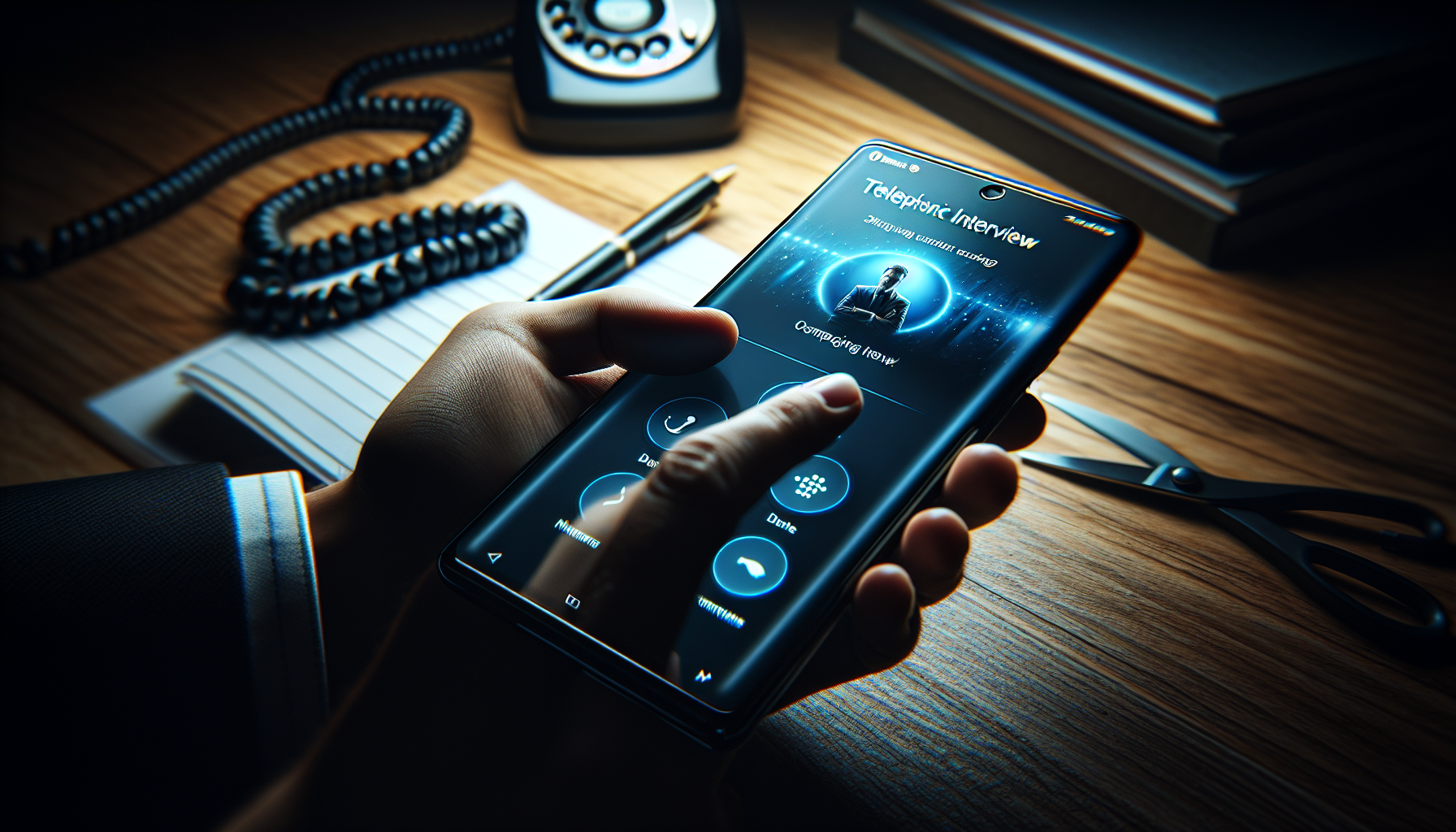In the job search process, interviews play a crucial role in determining whether or not you would be a good fit for the position and the company. However, each interview can vary in format, which can leave you wondering what to expect. From traditional one-on-one interviews to panel interviews and behavioral interviews, understanding the various formats can help you prepare effectively and confidently to showcase your abilities and skills. So, let’s explore the common interview formats and discover what you should expect during each one.
Telephone Interviews
Purpose of Telephone Interviews
Telephone interviews are a popular method used by employers to screen candidates before they invite them for an in-person interview. The purpose of a telephone interview is to gather preliminary information about a candidate’s qualifications, skills, and experience, as well as assess their communication skills and overall fit for the role. This initial step allows employers to narrow down the pool of applicants and select those who are most likely to succeed in the next stage of the hiring process.
Typical Questions in Telephone Interviews
During a telephone interview, you can expect a range of typical questions that aim to evaluate your background, abilities, and suitability for the position. These questions often revolve around your past experiences, skills, and accomplishments. Examples of typical questions include:
- Can you provide an overview of your relevant work experience?
- What are your strengths and weaknesses?
- How would you handle a challenging situation in the workplace?
- Can you describe a time when you demonstrated leadership skills?
- Have you ever faced a conflict with a coworker, and if so, how did you resolve it?
It’s important to prepare thoughtful and concise answers to these questions, highlighting your relevant accomplishments and demonstrating why you are a strong candidate for the position.
Tips for Telephone Interviews
To excel in telephone interviews, follow these tips:
- Choose a quiet and comfortable location with a good phone signal to eliminate distractions and ensure clear communication.
- Prepare in advance by researching the company and job requirements, and familiarize yourself with your own resume and the key points you want to highlight.
- Use a professional and friendly tone of voice, speaking clearly and confidently.
- Take your time before answering questions, as it is better to provide a well-thought-out response rather than rushing through it.
- Take notes during the call to help you remember important details and follow up effectively.
- Close the conversation by thanking the interviewer for their time and expressing your continued interest in the position.
Taking these steps will help you make a positive impression during a telephone interview and increase your chances of advancing to the next stage of the hiring process.
Video Interviews
Purpose of Video Interviews
With advancements in technology, video interviews have become increasingly common in the job application process. Video interviews serve the same purpose as in-person interviews, but are conducted remotely using video conferencing software. The purpose of a video interview is to assess a candidate’s qualifications, skills, and fit for the role, while also providing the opportunity for face-to-face interaction despite the physical distance.
Types of Video Interviews
There are two main types of video interviews: live video interviews and pre-recorded video interviews.
-
Live video interviews: Similar to traditional face-to-face interviews, live video interviews involve real-time interaction between the candidate and the interviewer. Both parties connect via a video conferencing platform and engage in a conversation where the candidate responds to questions asked by the interviewer.
-
Pre-recorded video interviews: In pre-recorded video interviews, candidates are provided with a set of interview questions and are required to record their responses within a given timeframe. These videos are then reviewed by the hiring team at a later stage. This format allows for greater flexibility, as candidates can record their responses at a time that works best for them.
Tips for Video Interviews
To succeed in video interviews, consider the following tips:
-
Test your technology: Ensure that your internet connection, webcam, and microphone are all working properly before the interview. Familiarize yourself with the video conferencing software you will be using and make sure you have downloaded any necessary updates.
-
Set up a professional backdrop: Choose a quiet and well-lit space with a neutral background for your video interview. Remove any potential distractions and ensure that you are the focal point of the screen.
-
Dress appropriately: Treat a video interview as you would an in-person interview and dress professionally. Avoid wearing distracting patterns or colors and opt for neutral tones.
-
Maintain eye contact: Look directly into the webcam when answering questions to create a sense of connection with the interviewer. This may feel unnatural at first, but it helps to establish a more personal interaction.
-
Practice beforehand: Conduct mock interviews with a friend or family member to get comfortable with the video interview format. Pay attention to your body language, facial expressions, and tone of voice.
-
Be mindful of non-verbal communication: Since video interviews rely heavily on non-verbal cues, be conscious of your gestures, posture, and facial expressions. Maintain a confident and engaged demeanor throughout the interview.
Following these tips will help you navigate video interviews with ease and present yourself as a strong candidate for the role.
